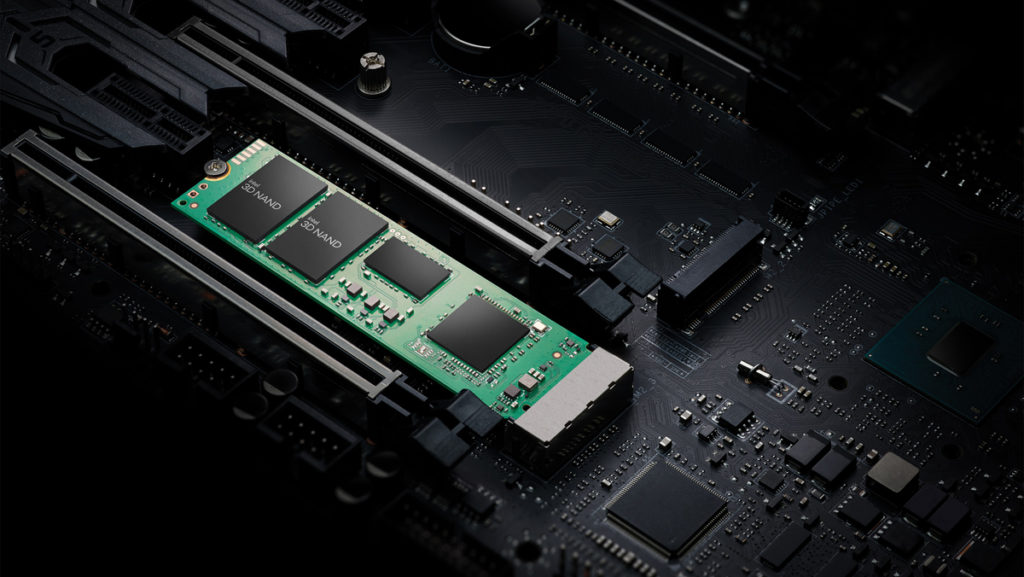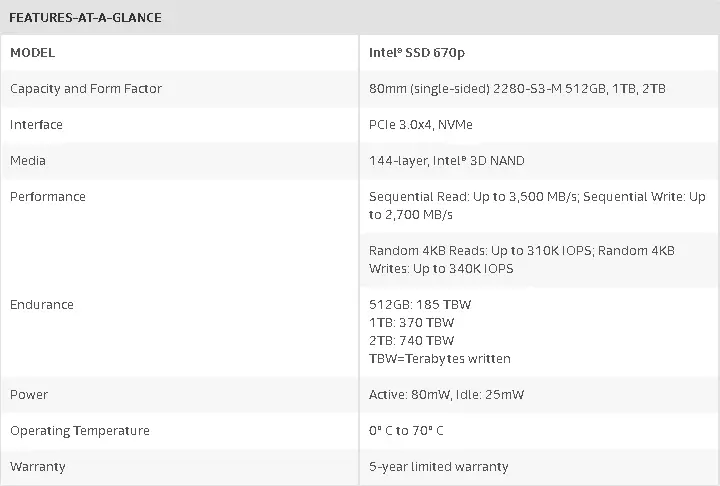
Intel has launched its Solid State Drive 670p, a 144-layer quad-level cell (QLC)-based client M.2 NVMe PCIe 3.0 SSD for everyday computing and mainstream gaming. As noted by Rob Crooke, Intel senior vice president and general manager of the NAND Products and Solutions Group, SSD 670p users can expect 38 percent better random read performance and up to 50 percent better latency over the company’s previous generation SSDs. Intel’s new 670p lineup is also available in capacities of up to 2 terabytes.
“Developed using the latest QLC technology, the Intel SSD 670p is equipped with capacity of up to 2 terabytes in a single drive, offering tremendous value for everyday computing needs, as well as mainstream gaming,” Intel’s press release reads. “Compared with the previous generation Intel QLC 3D NAND SSD, the 670p offers improved performance, including 2X sequential read and a 20 percent endurance update. Tuned for low queue depth and mixed workloads to meet the demands of today’s most common computing needs, Intel’s newest client drive offers the right balance of performance, cost and power”
“Intel has been developing its QLC technology over the past decade to bring the performance and capacity needed to meet today’s PC storage needs, including top-of-the-line storage and the ability to efficiently manage high volumes of data. Intel’s QLC SSDs are built on floating gate technology — their data retention is a key competitive differentiator. The Intel SSD 670p’s new cell configuration results in high-capacity storage optimized for everyday computing needs at an affordable price and helps accelerate SSD adoption.”
The Intel SSD 670p is available beginning today in 512 GB, 1 TB, and 2 TB capacities, the latter of which offers a Terabytes Written (TBW) lifespan of 740 TB. Sequential read and write speeds are listed as 3,500 MB/s and 2,700 MB/s, respectively.

